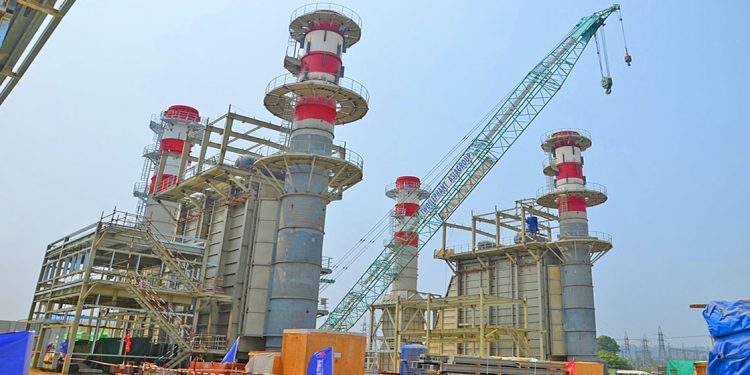Three of four Chinese-backed liquefied natural gas (LNG) power plants in Rakhine State’s Kyaukphyu Township in western Myanmar have ceased operation.
The three shuttered plants are located near Kyaukphyu deep-sea port project, and operated by VPower, a Hong Kong-listed power generation company.
Two of the plants ceased operation last year, and the third was shut recently after operating at partial capacity due to a limited supply of LNG, former Kyaukphyu Township lawmaker U Poe San told The Irrawaddy.
“The third plant had been running on and off since November last year. It has completely cased now. But [VPower] has not yet dismantled the plant. Two other plants have been dismantled and removed by them,” the former lawmaker said.
The company, which had a stake in nine power plants across Myanmar, said in September 2021 that it would not be renewing the contracts for power stations in Kyaukphyu Township in Rakhine State and Myingyan Township in Mandalay Region.
The company said the decision came after it faced challenging times amid the turmoil following the February 2021 coup.
The three plants operated by VPower in Kyaukphyu had a combined capacity of 150 megawatts. With their cessation, only one power plant is left in the township. The 135MW plant commenced operations in October of last year as a joint venture between Chinese state-owned Power China Resources and Myanmar’s Supreme Group.
“We haven’t had regular electricity since those plants ceased operations. We have only four to five hours of electricity a day. Small-scale businesses like ice factories and cold storage are facing difficulties. Here, people have to pump water with electrically powered pumps for household use. So, residents have difficulties when there is no electricity,” U Poe San said.
While cash shortages caused by the banking crisis following the coup have created huge problems for foreign companies, the electricity ministry is also short of funds to pay electricity suppliers, said a director of an electricity provider in Myanmar.
“Electricity production is a long-term business, so it is difficult for foreign investments to endure where there is no political and economic stability,” the director said.
The kyat’s decline against the US dollar has made generating power from LNG unfeasible under the rates agreed in electricity purchase agreements, he added.
According to the electricity purchase agreements it signed with the suppliers, the electricity ministry agreed to pay for a certain percentage of purchased units in US dollars, but it can now only pay in the Myanmar’s currency, sources said.
VPower entered the Myanmar market in 2015. Joint ventures with VPower won tenders for four projects when the now-ousted civilian government of the National League for Democracy invited bids for five projects in 2019 to address the electricity shortage during the hot season.
A joint venture between VPower and state-owned China National Technical Import and Export Corporation won three projects worth US$800 million with a combined capacity of 900MW.
They include the 150MW plant built near the Kyaukphyu deep-sea port project, which is a crucial part of China’s Belt and Road Initiative, and two in Yangon: the 400MW gas-powered plant in Thaketa Township and the 350MW power plant in Thanlyin Township.
The LNG vessel owned by VPower supplying its power plants in Myanmar left the country in March.

















